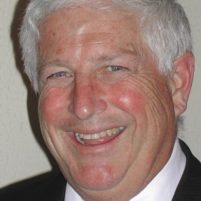California health plan conscripts your doctor and your care
June 9, 2017
By MICHAEL F. BROWN
The story in the 1965 dramatic movie epic Dr. Zhivago takes place a little less than 100 years ago during the time of the Bolshevik revolution. It depicts the fated destruction of an upper class Moscow family as the consequences of World War I and the revolution that consumed them.
In true Russian literary style, the story contains tragic love affairs, suffering from war, personal loss, and large-scale social displacement. It is lavishly filmed against the background spectacle of civil war, expropriation of private property, and brutal extermination of “the enemies of the Revolution.”
One scene, which always stood out, describes how Red Partisans conscript Dr. Zhivago at gunpoint to serve as their brigade medical officer. Obviously physicians were not rushing to volunteer. In the film clip to the right, the Red commander states, “Comrade doctor, we are Red Partisans and I need a medical officer.”
When Zhivago pleads that he can’t go because he has a family to care for, the commander menacingly replies, “Comrade medical officer, we shoot deserters.”
Unlike Dr. Zhivago’s captors, California’s current ruling enviro-socialist regime does not contemplate shooting doctors, hospital directors, and other medical providers to force them to “enroll” in the new so-called single payer state takeover of medicine. Instead the Democratic State Legislature’s proposed massive revolutionary expropriation of medicine, as contained in SB 562 “The Healthy California Act,” simply requires that anyone who needs or who might need medical services must enroll.
Simultaneously, it requires that anyone or any organization that provides medical services must enroll as a provider and agree to accept the fees, rules, and regulations established by the state in order to be paid. All persons living in California, including non-citizens will be covered.
Key provisions include:
1. The bill creates a new government agency called Healthy California (HC), which will be governed by a 13 member Healthy California Board of Directors. The governor will appoint four members, the speaker of the Assembly will appoint four members, and the Senate Committee on Rules will appoint four members. The State Secretary of Health and Human Services will serve as an ex-officio voting member.
The members will be appointed by class, including three members of labor organizations representing nurses, three representatives of the general public, three representatives of other labor organizations, and three representatives of the medical “provider” community. The appointment formula insures that, like the infamous and rogue California Coastal Commission which is appointed by the same tripartite formula, the new agency will be uncontrollable and none of the elected appointers can actually be held accountable.
The big difference from the Coastal Commission is that this new agency will control half a trillion dollars annually and virtually every aspect of the medical care system in the state. The obvious structural weighting of labor members will insure that powerful public employee unions will rule the entire medical system.
Imagine the political patronage power that will derive from awarding contracts, filling thousands of jobs necessary to administer the system, employing legal firms, hiring consultants, and all the rest. Moreover the agency will be able force medical providers such as hospitals, physician groups, pharmaceutical suppliers, and other entities over which they will have absolute power, to mirror and support that patronage power.
2. The HC will have the power to negotiate payment rates for medical services for all providers, including doctors, hospitals, not-for-profit health agencies, dentists, vision care providers, nursing homes, long-term care providers and virtually every other type of medical service. This includes single office physicians all the way up to large entities such as Kaiser and everything in between. It will also have the power to regulate the price of pharmaceuticals.
In regard to negotiating provider contracts, the act allows the HC to conduct the negotiations in secret.
“The board shall be subject to the Bagley-Keene Open Meeting Act (Article 9 (commencing with Section 11120) of Chapter 1 of Part 1 of Division 3 of Title 2), except that the board may hold closed sessions when considering matters related to litigation, personnel, contracting, and rates.”
The Legislature then makes a special finding to make fast this provision:
“The Legislature finds and declares that Section 2 of this act, which adds Sections 100610 and 100617 to the Government Code, imposes a limitation on the public’s right of access to the meetings of public bodies or the writings of public officials and agencies within the meaning of Section 3 of Article I of the California Constitution. Pursuant to that constitutional provision, the “Legislature makes the following findings to demonstrate the interest protected by this limitation and the need for protecting that interest:
“In order to protect private, confidential, and proprietary information, it is necessary for that information to remain confidential.”
Adding even more control, the proposed Act regulates who can negotiate rates and other conditions on behalf of providers with the HC:
“(a) Before engaging in collective negotiations with HC on behalf of health care providers, a health care providers’ representative shall file with the board, in the manner prescribed by the board, information identifying the representative, the representative’s plan of operation, and the representative’s procedures to ensure compliance with this chapter.”
This seems to require that providers give away their negotiating position before entering into negotiations with the HC.
More bizarrely, the act requires that the negotiating entities must pay a fee to cover the state’s costs of conducting the negotiations.
“b) Each person who acts as the representative of negotiating parties under this chapter shall pay a fee to the board to act as a representative. The board, by regulation, shall set fees in amounts deemed reasonable and necessary to cover the costs incurred by the board in administering this chapter.”
What would the sponsors of this bill think if such a provision were to be required for state, municipal, and educational unions to bargain collectively with their employers?
3. Providers that are organized as for-profit entities will be required to meet the same requirements and standards as entities organized as not-for profit. In this regard the proposed Act states:
“Payments to those entities shall not be calculated to accommodate the generation of profit from dividends, or the return on investment or the payment of taxes that would not be paid by not-for-profit entities.”
How will this impact a variety of businesses such as imaging centers, surgical-centers, private hospitals, nursing homes, for-profit dental providers, optometrists, privately owned ambulance companies, and other providers in the state? Is this simply outright confiscation and destruction of private business by the state? Will already high ambulance rates double as the private companies are driven out of business and thus as municipal fire and ambulance departments take over and must cover their unfunded pension liabilities and high labor rates.
 Significantly, and what the Legislators seem to have forgotten, is that they do not yet have the power to force doctors to stay in California. Many doctors might choose to retire. Some could band tougher and set up group practices that cater to wealthy patients who don’t use private insurance, Medi-CAL, or Medicare. These so-called concierge practices could balloon. Others could move to Austin, Scottsdale, and the Nevada side of Tahoe, Rocky Mountain states, or even communities on the eastern seaboard. Physician recruitment firms are desperate to find younger well-trained clinically competent doctors who demonstrate great patient presence.
Significantly, and what the Legislators seem to have forgotten, is that they do not yet have the power to force doctors to stay in California. Many doctors might choose to retire. Some could band tougher and set up group practices that cater to wealthy patients who don’t use private insurance, Medi-CAL, or Medicare. These so-called concierge practices could balloon. Others could move to Austin, Scottsdale, and the Nevada side of Tahoe, Rocky Mountain states, or even communities on the eastern seaboard. Physician recruitment firms are desperate to find younger well-trained clinically competent doctors who demonstrate great patient presence.
One question is how will the doctors, who are the key to any medical system, react? Are they ready to surrender professional independence to become de facto vassals of the state? Most doctors are smart. They had to get straight A’s in undergraduate school and take calculus, organic chemistry, and heavy doses of biology and anatomy, etc.
This is in contrast to gender studies, global warming studies, or other currently in-vogue politically correct subjects that are passed off by intimidated academic administrators as university-level courses. The rigorous science background is required to be admitted to medical school. Medical school and the subsequent residencies are essentially academic and physical boot camps. All in all, most doctors are in their 30’s before they can charge their first fee and many are broke, owing huge tuition loans. If the state is going to regulate their fees, how can they stay here?
Being a successful doctor is not a bed of roses. There is constant pressure to see enough patients to pay the overhead for nurses, medical assistants, office expenses, billing systems, and mal practice insurance, and to still afford a home, join a service club, and meet other requisite community expectations. Note, that even if a doctor works for a large organization, such a Kaiser or Samson-Santa Barbara, the underlying economics remain the same. An internist needs to see 16 to 20 patients in an afternoon session (after hospital rounds in the morning) to earn a living.
Every specialty has relentless productivity metrics. Additionally most doctors must work a number of weeknights and weekends on call to cover general hospital care and in many specialties, the ER, ICU, or surgical suite
What if the doctors refuse to embrace giving up professional independence and historic status in the private sector to become heavily regulated high paid government technicians? You can get your medical care in Las Vegas.
Mike Brown is the government affairs director of the Coalition of Labor Agriculture and Business (COLAB) of San Luis Obispo County. He had a 42-year career as a city manager and county executive officer in four states including California. He can be reached at mike@colabslo.org.








The comments below represent the opinion of the writer and do not represent the views or policies of CalCoastNews.com. Please address the Policies, events and arguments, not the person. Constructive debate is good; mockery, taunting, and name calling is not. Comment Guidelines